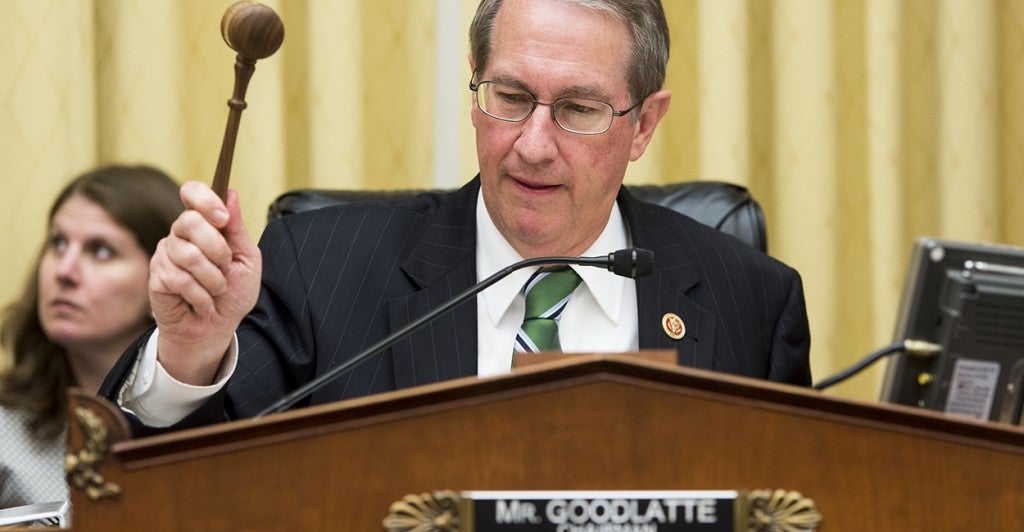Before the August recess, the House easily passed a bill to renew, without limit, a longstanding ban on taxing access to the Internet. Now some Senate leaders wants to add on a sales tax.
Dubbed the Permanent Internet Tax Freedom Act, the legislation would prohibit state and local governments from charging residents fees to browse the Web. The bill enjoys wide support in the Senate as well as the House.
But, with midterm elections approaching and the current law set to expire Nov. 1, Senate leaders in both parties have something else in mind.
They angled to couple extension of the popular measure with passage of a far more controversial bill that would limit tax-free shopping on the Internet. The Marketplace and Internet Tax Fairness Act combines into one bill a 10-year extension of the ban on Internet access taxes with a green light for states to impose online sales taxes.
Online retailers are crying foul. “These are separate issues that should not be combined in any way,” online industry leader Steve DelBianco told The Daily Signal.
Sen. Ron Wyden, D-Ore., is an original co-author of the Internet access measure. (Photo: Tom Williams/CQ Roll Call)
The sales tax proposal, approved by the Senate as a standalone bill called the Marketplace Fairness Act in May 2013, would grant each state the authority to collect sales taxes from out-of-state retailers who sell products online to consumers within the state’s borders. Currently, states cannot enforce collection of sales taxes from retailers that do not have a physical presence in the states.
President Obama last year supported the Senate bill, which the White House said would level the playing field for local small business retailers that are in competition every day with large, out-of-state online companies.”
The White House said allowing states to tax online sales would “level the playing field.”
Operators of traditional brick-and-mortar stores are lobbying hard for the new Senate bill.
“It’s very difficult to compete when online retailers can price something up to 10 percent less than brick-and-mortar stores can,” said David French, senior vice president for government relations at the National Retail Federation, in an interview with The Daily Signal.
“We are not defending the sales tax,” French said of the traditional tax. “If Congress wanted to ban the sales tax we would be all for it. But if you are going to have it, it ought to be applied fairly.”
“If you are going to have it [a sales tax], it ought to be applied fairly,” says the National Retail Federation’s David French.
Online sellers, however, say they would struggle with the complexity of compliance burdens from thousands of state and local tax jurisdictions if the Senate measure were to become law.
DelBianco, executive director of NetChoice, which represents online companies including eBay, Google, Facebook and Yahoo, has lobbied against the Marketplace Fairness Act.
If the Senate insists on combining the tax-free access and sales tax measures, DelBianco said, he expects Congress to agree to extend the moratorium on access taxes into December. He said:
If they address it at that point [after midterms], there will be less public scrutiny but the pressure of time increases. That’s a dangerous combination. I hope the House stays strong. These are separate issues that should not be combined in any way.
Grover Norquist, president of Americans for Tax Reform, and Sen. Rand Paul, R-Ky (right), are among those opposing the Internet tax in a press conference. (Photo: Tom Williams/CQ Roll Call)
House Appropriations Chairman Hal Rogers yesterday included an extension of the ban on access fees to Dec. 11 as part of a short-term continuing resolution he introduced to prevent a government shutdown at the end of the fiscal year Sept. 30. That would delay pressure to marry the two measures.
House Judiciary Chairman Bob Goodlatte, R-Va., has expressed the same concerns as DelBianco, warning that the Senate proposal would expose online retailers to obstacles not suffered by brick-and-mortar retailers in complying with tax laws.
Goodlatte has refused to take up the bill for consideration.
In September, Goodlatte released a set of seven principles that any online sales tax bill must meet to be considered in the Judiciary Committee. He held a hearing on the issue in March.
“Both Republicans and Democrats agree that American consumers do not need another tax bill – and this vital legislation bans state taxation of Internet access permanently,” Goodlatte said of the Permanent Tax Freedom Act in a statement to The Daily Signal. “I urge the Senate to take action by passing a clean bill before the temporary tax moratorium expires on Nov. 1.”
James Gattuso, a Heritage Foundation expert in regulatory and telecommunications issues, calls the Senate proposal “a national sales tax.” Gattuso added:
It is not just a tax increase for Americans, but also a violation of federalism. You have citizens in one state being subjected to laws in other states where they don’t live, work or vote.
Sen. Mike Enzi, R-Wyo., sponsor of the Marketplace and Internet Tax Fairness Act and a longtime supporter of online sales tax legislation, views his combined bill as a compromise.
“Senator Enzi supports giving states the authority to enforce their own laws and collect, if they choose, the sales tax already owed by state law,” an Enzi spokesman told The Daily Signal, adding:
He does not support taxing internet service. That’s why he introduced a bill that would address both issues in one piece of legislation. Neither are new issues and Senator Enzi believes both should be signed into law this year.
